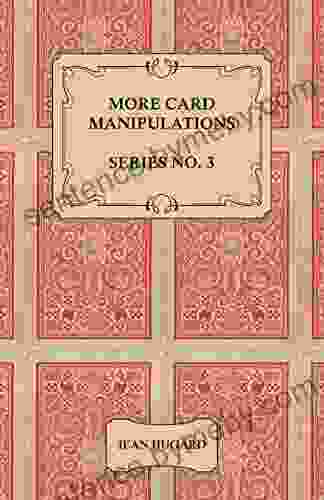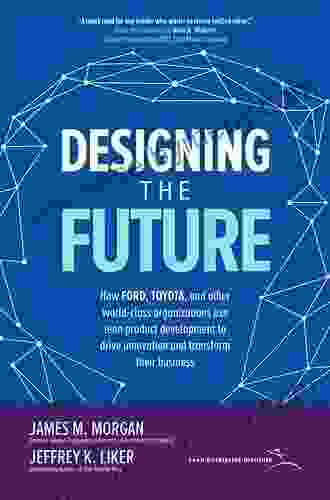Unlocking Lean Product Secrets: A Journey with Ford, Toyota, and Industry Leaders

Lean product development has emerged as a transformative approach that empowers organizations to streamline their operations, reduce waste, and deliver exceptional products with unparalleled efficiency. In the highly competitive business landscape, embracing lean principles can provide a decisive edge, enabling companies to outpace rivals and capture market share.
This comprehensive article delves into the world of lean product development, exploring its key principles, success stories, and practical applications from industry giants such as Ford and Toyota. By understanding the fundamentals of lean and implementing them effectively, businesses can unlock the potential for increased productivity, innovation, and customer satisfaction.
Lean product development is a systematic approach that focuses on maximizing value while minimizing waste throughout the product lifecycle. This customer-centric philosophy emphasizes the importance of delivering products that meet real market needs in the most efficient manner possible.
4.3 out of 5
| Language | : | English |
| File size | : | 12189 KB |
| Text-to-Speech | : | Enabled |
| Screen Reader | : | Supported |
| Enhanced typesetting | : | Enabled |
| Word Wise | : | Enabled |
| Print length | : | 400 pages |
Key principles of lean product development include:
- Eliminating waste: Identifying and eliminating non-value-added activities that consume time and resources.
- Building value: Focusing on delivering products that provide tangible benefits to customers.
- Reducing cycle time: Streamlining processes and reducing the time it takes to bring products to market.
- Empowering cross-functional teams: Fostering collaboration and communication among teams with diverse expertise.
- Continuous improvement: Maintaining a mindset of continual learning and seeking opportunities to enhance processes.
Ford Motor Company has embraced lean principles with remarkable success, significantly improving its product development capabilities. By implementing a cross-functional team approach, Ford was able to reduce the development time for its F-150 pickup truck by 30%.
The company also adopted Toyota's Production System (TPS) to optimize manufacturing processes. TPS emphasizes waste reduction, just-in-time inventory management, and continuous improvement. Ford's adoption of TPS resulted in a 75% reduction in assembly defects and a 40% increase in productivity.
Toyota is widely recognized as a pioneer and global leader in lean product development. The company's Toyota Production System (TPS) has become a benchmark for operational excellence in industries around the world.
TPS is based on the principles of Just-in-Time (JIT),which eliminates waste by producing products only when they are needed, and continuous improvement (Kaizen),which encourages employees to constantly seek ways to enhance processes.
Toyota's lean approach has resulted in exceptional quality standards, reduced production costs, and increased customer satisfaction. The company is known for producing vehicles that are renowned for their reliability, durability, and fuel efficiency.
Organizations that embrace lean product development experience a wide range of benefits, including:
- Reduced waste and increased efficiency: Lean principles help identify and eliminate non-value-added activities, freeing up resources and reducing costs.
- Faster time to market: By streamlining processes and reducing cycle time, organizations can bring products to market more quickly, gaining a competitive advantage.
- Improved product quality: Lean's focus on customer satisfaction and continuous improvement ensures that products meet or exceed expectations.
- Increased flexibility and adaptability: Lean organizations are more agile and responsive to changing market conditions, enabling them to adjust product offerings and processes rapidly.
- Enhanced team collaboration: Cross-functional teams foster knowledge sharing and innovation, leading to better decision-making.
Lean product development principles can be applied to various industries and sectors. Some practical examples include:
- Automotive: Ford, Tesla, and Toyota have successfully implemented lean principles in their vehicle development and manufacturing processes.
- Software development: Agile methodologies such as Scrum and Kanban are inspired by lean principles and are widely used in software development.
- Healthcare: Lean principles are being adopted to improve patient care, reduce waiting times, and reduce costs in healthcare systems.
- Manufacturing: Lean techniques have been instrumental in optimizing production processes and reducing waste in various manufacturing industries.
- Supply chain management: Lean principles can help streamline supply chains, reduce inventory levels, and improve supplier relationships.
James Womack's groundbreaking book, "How Ford Toyota And Other World Class Organizations Use Lean Product," provides valuable insights into the successful implementation of lean product development. Some key findings from the book include:
- Leaders must champion lean: Successful lean transformations require strong leadership that sets clear goals and fosters a culture of continuous improvement.
- Cross-functional collaboration is essential: Breaking down silos and encouraging collaboration among teams improves communication and enhances decision-making.
- Empower employees at all levels: Giving employees the authority and resources to make decisions empowers them and leads to better outcomes.
- Metrics and data drive improvement: Using metrics and data to track progress and identify areas for improvement is crucial for continuous learning.
- Learning from others is invaluable: Benchmarking against industry leaders and sharing best practices can accelerate lean transformations.
Lean product development has proven to be a powerful approach for organizations seeking to improve their productivity, innovation, and customer satisfaction. By embracing lean principles and implementing them effectively, businesses can unlock the potential for exceptional performance and gain a competitive edge in the global marketplace.
The examples of Ford, Toyota, and other world-class organizations demonstrate the transformative power of lean product development. By learning from their successes and applying their principles, businesses can embark on their own lean journeys and achieve remarkable results.
If you are an organization seeking to transform your product development processes and establish a culture of continuous improvement, I encourage you to explore the principles and practices of lean product development. The benefits are substantial and can positively impact your business in numerous ways.
Embrace lean, unleash your organization's potential, and pave the way for a more efficient, innovative, and customer-centric future.
4.3 out of 5
| Language | : | English |
| File size | : | 12189 KB |
| Text-to-Speech | : | Enabled |
| Screen Reader | : | Supported |
| Enhanced typesetting | : | Enabled |
| Word Wise | : | Enabled |
| Print length | : | 400 pages |
Do you want to contribute by writing guest posts on this blog?
Please contact us and send us a resume of previous articles that you have written.
 Book
Book Novel
Novel Page
Page Chapter
Chapter Text
Text Story
Story Genre
Genre Reader
Reader Library
Library Paperback
Paperback E-book
E-book Magazine
Magazine Newspaper
Newspaper Paragraph
Paragraph Sentence
Sentence Bookmark
Bookmark Shelf
Shelf Glossary
Glossary Bibliography
Bibliography Foreword
Foreword Preface
Preface Synopsis
Synopsis Annotation
Annotation Footnote
Footnote Manuscript
Manuscript Scroll
Scroll Codex
Codex Tome
Tome Bestseller
Bestseller Classics
Classics Library card
Library card Narrative
Narrative Biography
Biography Autobiography
Autobiography Memoir
Memoir Reference
Reference Encyclopedia
Encyclopedia James Ker
James Ker Paul Myerson
Paul Myerson Janet Renner
Janet Renner Katie Kitamura
Katie Kitamura Paolo Hewitt
Paolo Hewitt Jason Tesar
Jason Tesar Jane E Miller
Jane E Miller Jay Walden
Jay Walden Jared Chapman
Jared Chapman James Rice
James Rice Loran Nordgren
Loran Nordgren Simon J Hall
Simon J Hall Jason Dukes
Jason Dukes John Haines
John Haines Jim Cobb
Jim Cobb Nate Piekos
Nate Piekos James Mcnicholas
James Mcnicholas Kim Cash Tate
Kim Cash Tate Rod Powers
Rod Powers James Omoghosa Abu
James Omoghosa Abu
Light bulbAdvertise smarter! Our strategic ad space ensures maximum exposure. Reserve your spot today!

 Glenn HayesSwim Speed Strokes For Swimmers And Triathletes: The Ultimate Guide to Faster...
Glenn HayesSwim Speed Strokes For Swimmers And Triathletes: The Ultimate Guide to Faster...
 Aaron BrooksUnlock the Secrets of the Wild West: Cowboy Skills: Roping, Riding, Hunting,...
Aaron BrooksUnlock the Secrets of the Wild West: Cowboy Skills: Roping, Riding, Hunting,... Herb SimmonsFollow ·13.2k
Herb SimmonsFollow ·13.2k Dustin RichardsonFollow ·15.2k
Dustin RichardsonFollow ·15.2k Raymond ParkerFollow ·18.6k
Raymond ParkerFollow ·18.6k Allan JamesFollow ·16.6k
Allan JamesFollow ·16.6k Daniel KnightFollow ·19.3k
Daniel KnightFollow ·19.3k Junichiro TanizakiFollow ·8.3k
Junichiro TanizakiFollow ·8.3k Hank MitchellFollow ·17.2k
Hank MitchellFollow ·17.2k Harry CookFollow ·13.4k
Harry CookFollow ·13.4k

 Franklin Bell
Franklin BellHow Businesses Can Thrive In The New Global Neighborhoods
The world is becoming...

 Rob Foster
Rob FosterCard Manipulations Volume 1: A Masterclass in Deception...
Unveiling the...

 Enrique Blair
Enrique BlairUnveil the Secrets of Card Manipulation: Dive into "More...
Step into the captivating world...

 Jamal Blair
Jamal BlairComedy Fillers 200 Quips One Liners Jean Hugard
Unlock the Secrets of...

 Chase Simmons
Chase SimmonsUnlock Financial Independence: A Comprehensive Guide to...
In a world where financial security seems...

 Dion Reed
Dion ReedUnveiling Global Market Entry Strategies: A Comprehensive...
Global Market Entry Strategies:...
4.3 out of 5
| Language | : | English |
| File size | : | 12189 KB |
| Text-to-Speech | : | Enabled |
| Screen Reader | : | Supported |
| Enhanced typesetting | : | Enabled |
| Word Wise | : | Enabled |
| Print length | : | 400 pages |








